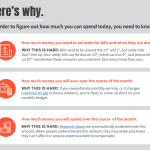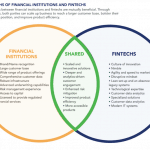Delivering on Mass Market Insurance in Africa: Debunking the Myth of Low Demand
Africa’s insurance penetration rate in 2019 was only 2.78%, significantly lower than the global average insurance rate of 7.23%. Insurance penetration in Africa is concentrated among the urban elite, with minimal adoption among the remaining 90% of people with low and middle incomes — the very people who often face the most risk of financial shocks. As a result of this lack of coverage, 14 million low-income households in Africa are pushed into poverty every year due to unplanned health costs alone.
The rise of the microinsurance industry in the early 2000s was motivated by a belief that low insurance penetration among the mass market was driven by the high cost of insurance. The industry assumed that reducing prices would be sufficient to increase demand. However, with these mass market insurance offerings still failing to deeply penetrate African markets over the last 20 years, many have shifted to the belief that there is actually a deep-seated demand-side issue — maybe customers just don’t understand or see value in the benefits of insurance.
Turaco’s rapid growth across Kenya, Uganda and Nigeria over the last three years is debunking the myth that there is no demand for insurance among low- and middle-income customers on the continent. People in these market segments are acutely aware of their financial volatility and the risks they face. Because of this, they understand the value of insurance and will pay to protect themselves. Our team consistently records sales conversion rates of 30 – 50% when we call customers to explain our insurance products (whereas typical cold call conversion rates are about 2%). There is no doubt: Low- and middle-income customers in Africa will pay for insurance.
We believe there are three aspects of our model that enable us to unlock this latent demand for insurance, which I’ll discuss below.
Make buying insurance frictionless
Buying insurance is very much a rational decision. However, when the time comes to reach for your wallet or set up a mobile money or bank transfer, that moment when you part with your money is typically an emotional act. We therefore work to separate the rational decision to buy insurance from the emotional act of having to pay for it, by distributing insurance through a subscription-like model that leverages the existing transactions customers make while using other financial services provided by our distribution partners. Our model relies on partnerships with companies that have existing ongoing financial transactions with mass market customers; these companies are excited to help distribute insurance due to the increase in revenue, reduction in customer churn, and improvement of portfolio resiliency they see from the addition of insurance to their product offerings.
For instance, a farmer can opt into our health insurance coverage when accessing a seasonal loan from agricultural service provider One Acre Fund. The farmer chooses to purchase the coverage at the beginning of the planting season, and the premium is added to their loan repayment. Similarly, a motorcycle or taxi driver can have the fee for motorcycle and accident insurance deducted from their mobile wallet on the ride hailing app SafeBoda.
Turaco utilizes a digital platform to manage policy administration, claims and other backend processes: By leveraging API integrations between this platform and our distribution partners’ own backend platforms, the addition of insurance doesn’t add any significant administrative burden to the partner, and it provides a seamless experience for the customer. There are no additional forms to fill out or payments to make: Insurance becomes an easy “yes” when it only requires a marginal increase to an existing transaction.
Overcome customers’ lack of trust in insurance
It is critical for people to trust both the insurance and the insurer, since insurance as a product is only valuable if the insured person can trust they will be paid when they make a claim. There is a general lack of trust in insurance among African consumers, and for good reason: Many insurance products in Africa are slow to pay out, or have complex exclusions.
We’ve made a concerted effort to overcome this lack of trust in the industry. Turaco’s motto is that we are in the “claims paying business.” We design products that are simple and straightforward to claim. Then, using our tech-driven claims processes, we are able to pay claims fast, usually within a few hours of receiving documentation.
We also leverage the brand trust of our distribution partners to reassure customers that they can trust that we will pay valid claims. If an end user already trusts a distribution partner enough to do business with them, then they will be much more willing to work with Turaco when the distribution partner makes a “warm” introduction to us as their insurance partner.
Design insurance products with the customer in mind
While a low price alone may not have been enough for the broader industry to create demand for insurance, making sure the price point works for low- and middle-income customers is still important.
To help keep our offerings affordable, Turaco simplifies products to cover the biggest risks that most customers face (e.g., hospitalization, death, theft of a productive asset), in order to ensure that the benefit levels for the price point make sense. In cases like hospitalization, which can lead not only to multiple expenses but also to lost income, customers are provided with a simple flat rate payout to cover all these financial needs. We also work with our partners to structure payment frequency to align with our customers’ income. For example, farmers pay for their insurance coverage once a year around harvest time but are covered all year round, while motorcycle drivers can pay for monthly coverage in small increments throughout the month.
Simplicity keeps the price down and makes insurance accessible to people who have never had it before. Ultimately, by designing easy-to-use products focused on low- and middle-income customers’ biggest needs, and selling them seamlessly through trusted channels, we’ve been able to tap into incredibly high demand for insurance among these market segments.
What’s next for insurance market expansion in Africa
The African insurance market is expanding, and several recent developments are promising for the sector. For example, evidence from comparable markets, as highlighted in a 2020 McKinsey report, shows that market liberalization and deregulation, mandatory insurance, increased access through wider distribution, public-private partnerships, and regulation to support innovation and access all lead to higher levels of consumer trust and adoption. We are excited by the efforts we’re seeing from African regulators to enable innovation in their insurance markets, supported by programs like BimaLab, funded by FSD Africa. These structural reforms are on the rise across the continent, and they should spark increased adoption of insurance, similar to the trend in more developed markets.
These developments, combined with the growth and regulatory support of mobile wallets and payment infrastructure that we’ve witnessed over the past several years, are creating a more enabling environment for digital insurance innovators like Turaco. We’re excited to be a leader in the ongoing development of Africa’s insurance market over the coming years, as we work to bring vital risk protection to the people who need it most.
Ted Pantone is CEO and co-founder of Turaco.
Photo via Global Devlab. Credit: Bobby Neptune for DAI
- Categories
- Finance, Telecommunications



